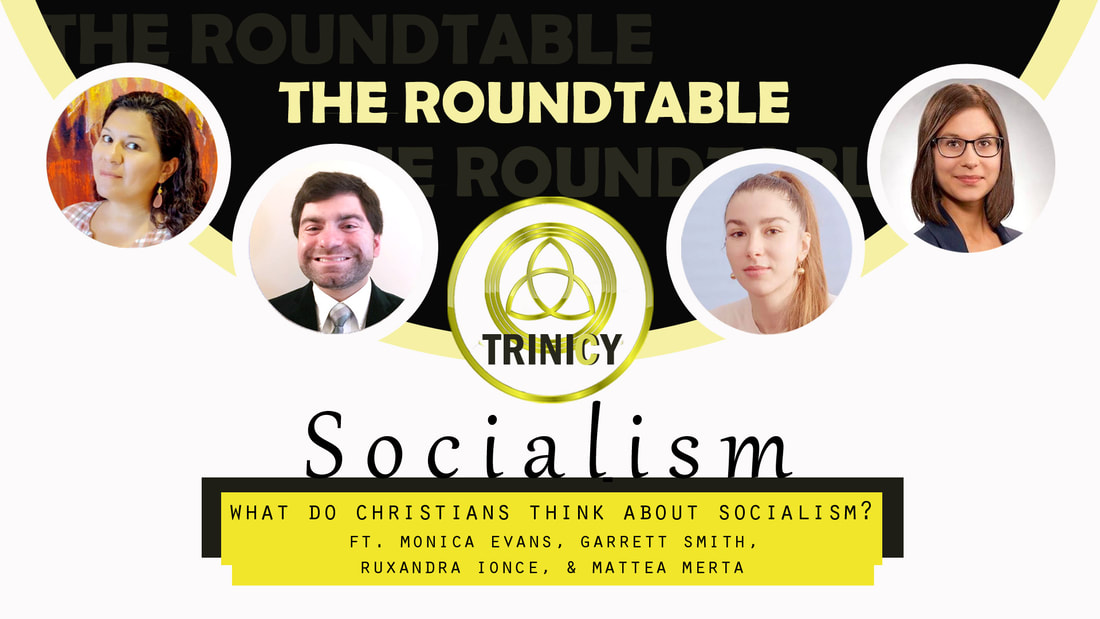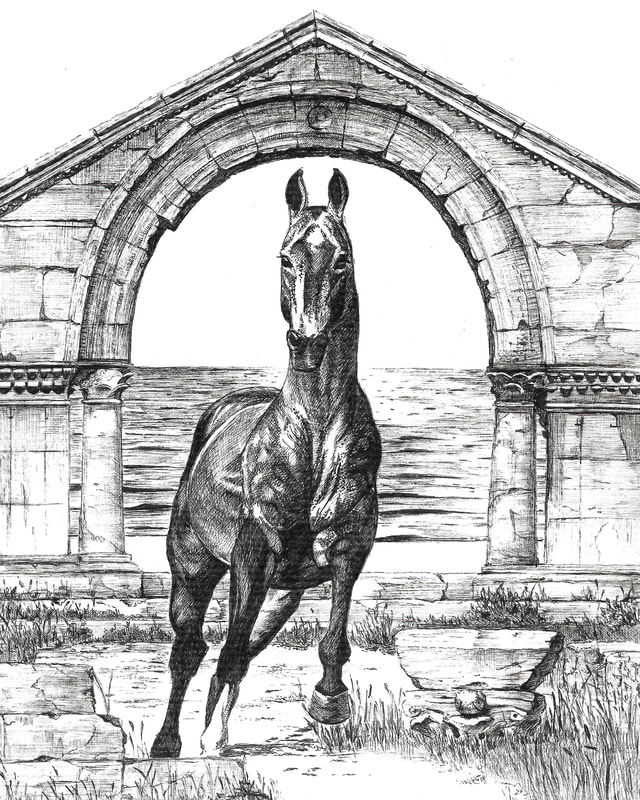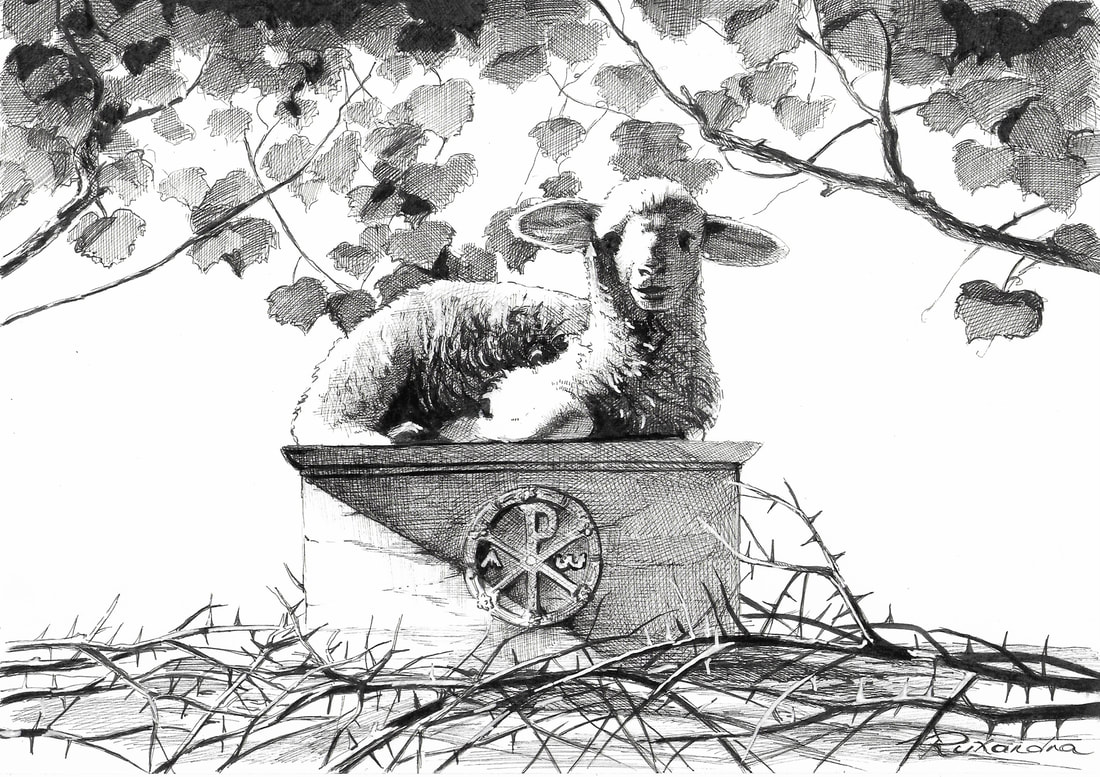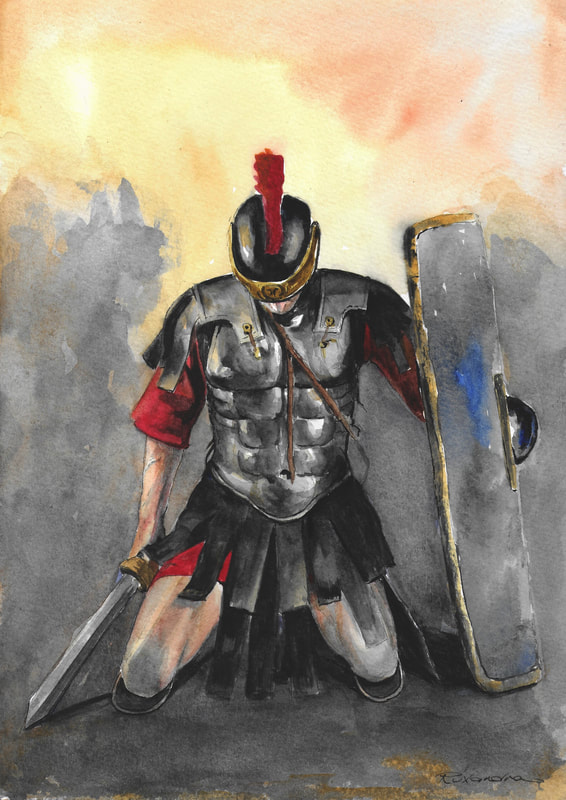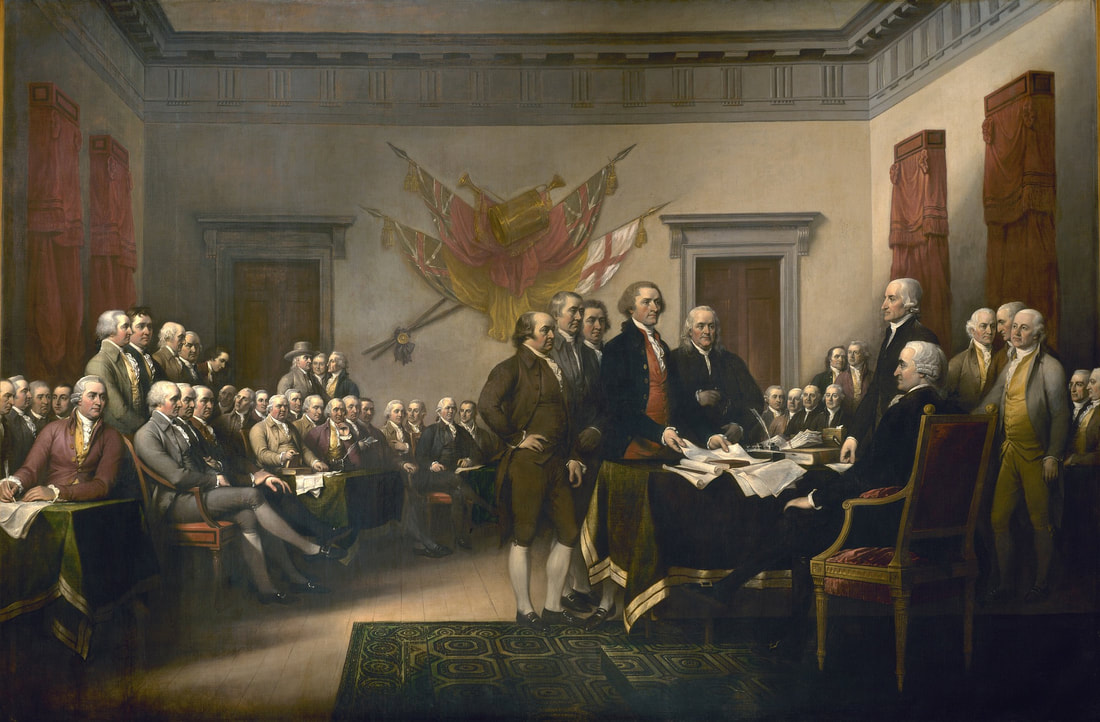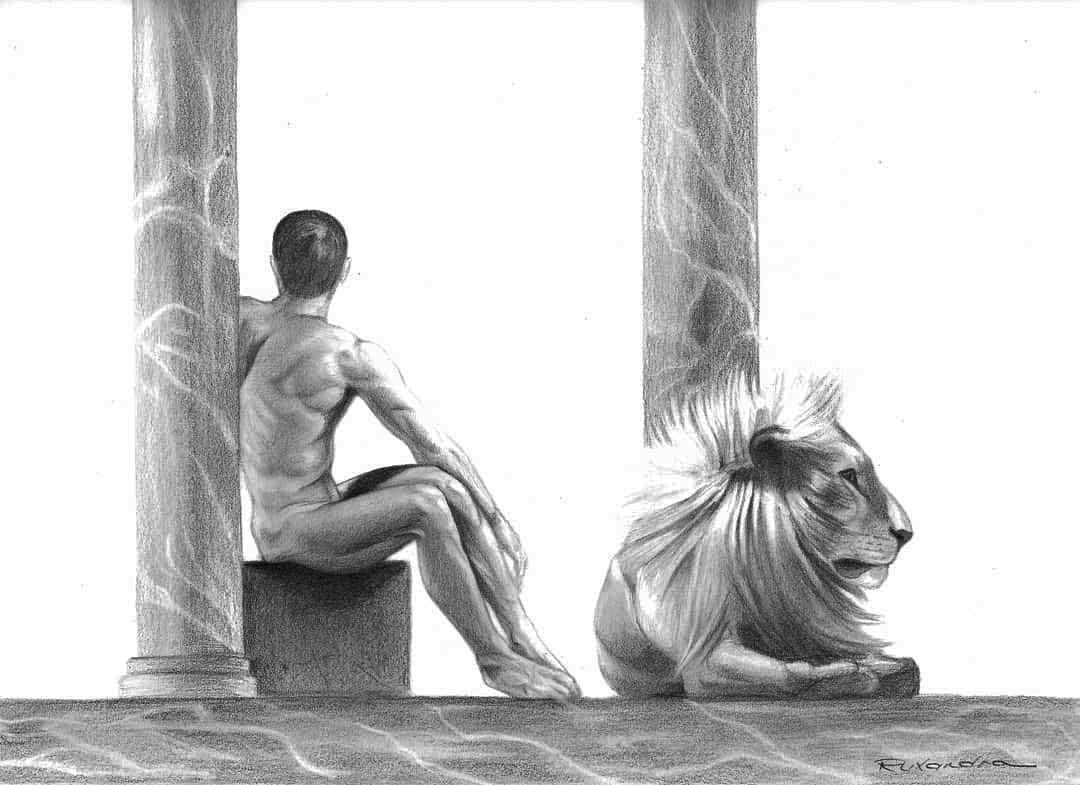|
Click the image above to watch the FULL Roundtable One of the trending words today, especially on America's campuses, is "socialism." As Christians, what do we know about socialism and how should we approach its claims moving forward, especially in an election year? Welcome to the TRINICY Roundtable, one of our initiatives to cultivate conversation among conservative Christians on and off campus on relevant topics of the day. The vide above contains the FULL Roundtable discussion on these questions. The videos below will offer shorter segments of the talk if you would much rather head straight towards certain topics. Please consider subscribing to our YouTube channel to receive regular updates on our most recent work video-wise! Your support means a lot to us! Roundtable ParticipantsModerator: Mattea Merta (Canada) Panelists: Monica Evans (Arizona, U.S.A.), Garrett Smith (North Carolina, U.S.A.), & Ruxandra Ionce (Denmark) #1: What is socialism?!?!We start our first segment with defining the word "Socialism." What is it? Let's hear from our panelists! Did we miss anything? Please share in the comments - here or on YouTube! #2: What are our top concerns?What are our top concerns as citizens and as Christians when it comes to socialism? Listen in! Do you have concerns that are not represented by the views of the panel? Please share them with us in the comments! #3: Why is socialism so appealing to the youth?Why is Socialism SO Appealing to Youth? This is a serious question! Our panelists provide serious answers. Listen in. #4: Favorite products from capitalism?What are some of YOUR favorite products produced by capitalism? Share them in the comments below! #5: Is "christian socialism" a thing?Is Christian Socialism a THING? Where did this notion even come from? What Scriptures from the Bible purportedly support this? #6: How does socialism affect the family?What is the reality and fate of the family unit under socialism? Why is even the family a threat to socialism? #7: Where did we go wrong & how can we fix it?Where have we gone wrong as a Church? What hope is there moving forward? Our panelists don't linger on the negatives. They provide a biblical worldview to help our audience keep marching on as soldiers for Christ! We hope you enjoyed watching or listening in to this discussion between some of our most outspoken conservative Christian members and leaders in TRINICY. If you are a conservative Christian and would love to join this movement, please reach out to us at info@trinicy.org. We are looking for you and we would love to finally connect! If you enjoyed this discussion, please share the content with your friends and family, especially those who are currently on secular or secularized campuses. Questions or comments?What did you think of the Roundtable overall? Which segments did you find the most interesting or challenging? Why? Please share in the comments here or directly on the YouTube videos!
1 Comment
One of the most overwhelming truths about our existence is that everything is subject to the limitations of time: the glory of empires meet their fatidic end; the glory of heroes turn into a faint memory, and all creatures come and go. These were probably the thoughts of Heraclitus, the Greek philosopher, when he stated the famous maxim "Panta Rhei," which means everything flows. He was a peculiar philosopher, in that he was most likely prone to depression. Hs obscure views of the world were possibly a result of him internalising more than other people of his time about the hopelessness of this world. But should we, Christians, fall prey to feelings of nostalgia and melancholy? Even though for some more than for others, being optimistic is a hard endeavour, we ought to see time as working always to our advantage! Indeed, the word of God says in 1 John 2:17, "The world and its desires pass away, but whoever does the will of God lives forever." We look and boldly run ahead, knowing every second is a step closer to Heaven! All the things we do have eternal consequences. The relationships we build with our brothers and sisters in Christ will endure forever, because we, His Bride, were made to last forever! Nothing is lost, everything is gained. Panta Rhei!
Original watercolor painting by Ruxandra Ionce My grandma used to tell me I should learn how to be alone with myself. Everyone of us will go through seasons of loneliness and isolation for reasons beyond our control. These can be terrifying times, mostly because loneliness does not allow us to camouflage those deep places of our soul that we so successfully cover up with the noises of modern life. God often uses these times to confront us with the raw state of our souls, to confront us with who we actually are and what we actually have. In solitude, God worked in the lives of the heroes of faith sculpting, refining, and perfecting their characters and purifying their souls. In isolation, on the small island of Patmos, God revealed to John the future glory of the church. Isolation can be contemplative, peaceful, pleasant. God gave us the gift of imagination to use it according to Philippians 4:8 and fill our minds with beautiful and noble things. We do not suffer more today because our problems are greater than before. Instead, we suffer because the world is too loud and we lose control of the things we let in. We were made to live in a garden, surrounded by God's creations. However, for many of us it is not physically possible to escape our urban environment. There is a solution: we have Christ with us, beside us, around us. We can use our imagination to better comprehend the reality of Christ being next to us, to contemplate His beauty, and the work of His hands.
Artwork by Ruxandra Ionce THE ARTIST'S STATEMENTThe righteous man is the one who believes and obeys, a man in whom God finds great pleasure. He is always green and full of life even in the heat of the desert sun, his fruit is sweet, his stature graceful and pleasant for the eye. Anybody who receives the gift of Life at the cross will reflect the beauty of Christ through obedience, nobody is left in want nor with a cup half full. God loves to use His creation to inspire us to see the abundance, the fullness and the incomprehensible joy of the things yet unseen!
By Ruxandra Ionce | @ruxandradoxiada | TRINICY.org "The Lamb of God" by Ruxandra Ionce THE ARTIST'S STATEMENT The Giver of Life, the One for whom and through whom all things were made, came on this broken earth to suffer with us and for us, to forgive, to heal and to bring back to life. Jesus Christ, Life itself, in death defeated death. There is no greater message nor more sublime truth than to know that Jesus Christ, the Son of God, took all the sins of humankind, past, present and future, so that it would never be separated from Him again. Let us be bold and fearless like John the Baptist, when he loudly proclaimed these truths in front of the crowds: "Behold the Lamb of God, who takes away the sin of the world!" (John 1:29). Let us not fear men with their arguments and actions against such a wonderful truth, and allow for the light God gave us to shine brightly and defeat the darkness of this world. Always remember the words "I am the vine, you are the branches. He who abides in Me, and I in him, bears much fruit; for without Me you can do nothing." (John 15:5) YOUR TURN Does this illustration resonate with you as a conservative Christian? Earlier this month, we celebrated the resurrection of the King of Kings. Do you remember what He lived for, died for, and rose again for? How can you hold on to and live out this truth daily? Because of the sacrifice and submission of the Lamb of God, you and I are free from the wages of sin. Will you choose to joyfully proclaim this eternal truth even in the midst of fear, panic, and anxiety in our world today?
By Ruxandra Ionce | TRINICY.org Abstract: The present essay concludes the first series of essays meant to define and develop the concept of the “Christian Imperative,” focusing on the Biblical view of civil authorities and the necessity of a government, as a condition of the fallen state of mankind. As in the previous essays, the subject cannot be treated in an exhaustive manner; however, the points made should offer enough information for the reader to form an opinion and pursue further study, being aware of the overwhelming amount of resources and rich Christian history.
Understanding the ontology of the state and nations has been the subject of intense study which, under the paradigm of evolutionary theory, has created more problems than has offered solutions. A lot of questions were raised regarding the evolution of languages and a state’s raisons d'être with various answers that often raise even more questions. It is, however, sensible to assume people have organised themselves into groups based on criteria that separated them from the rest; the naturally emerging collective identity, which in the course of time will often develop into a national identity. The walls of the citadel primarily served the purpose of protection and security in a fallen world. Since this topic, as the previous ones, can be subject to hundreds of pages, this essay will offer a schematic approach to the biblical view on statehood. Fortunately, the Bible offers a clear historical account regarding the beginning of nationhood: the Tower of Babel. We can, therefore, draw the conclusion the separation of mankind into groups is a part of God’s sovereign design for humanity. Based on Genesis 11:6, we can also conclude language is the first cause of the appearance of nations: And the Lord said, “Behold, they are one people, and they have all one language, and this is only the beginning of what they will do. And nothing that they propose to do will now be impossible for them.” This powerful verse presents the dangers mankind would pose to itself if there are no barriers of language:
A state exists for a number of different reasons, which can easily be derived both from reading the Bible or other historical documents:
Because of sin, a defined hierarchy and subjection have become necessary in order to keep people accountable for their behaviours and deeds. Anarchy is neither biblical nor logical, since it offers no accountability to the individual behaviour. To deny this fact means to deny the existence of rebelliousness, one of the most obvious truths about human nature. The apparent dichotomy between God’s chosen people and the rest of the world, to which many may raise the objection of discrimination, is they are only to show and portray God’s relationship with His church, His sovereign choice, and to prepare the way for His Son to come. Moreover, there are numerous biblical heroes of non-Hebrew origins such as Rahab, Ruth, Uriah the Hittite, the faithful centurion, and many others who are there to show even before Christ, God did not withhold His grace from anybody who would turn to Him. Through Christ’s resurrection, the walls between the Gentiles and Jews have been completely demolished:
It might come as a surprise to recognize the main political systems we know today are not a modern invention, but have already been tested in the ancient Hebrew society. Extrapolating political teachings from the Old Testament has been subject of study to many biblical scholars. The books of Joshua, I Samuel, II Samuel, I Kings, and II Kings deal with the topic of state administration within the Israelite nation under the keter torah (meaning the crown of the Torah and also the crown used to adorn the Torah scroll in the synagogue). Based on Deuteronomy 16:18, one could say, the ideal form of administration was a form of “proto-federalism” under the judges: “‘You shall appoint judges and officers in all your gates, which the LORD your God gives you, according to your tribes, and they shall judge the people with just judgment.’” The ideal form of state administration is illustrated in the book of Joshua, the highest authority being divided, albeit not equally in importance, between the Eved Adonai (God’s prime minister) and Kohen Gadol (the high priest). Because of the persistent demand from the people to emulate the surrounding nations, it was only reluctantly God allowed their transition to rule by monarchy. This transition came not without warning, as God specifically instructed Samuel to show the people the compromises necessary for this new regime (1 Samuel 8:10-17). We can already notice the Bible offers us examples of political and administrative forms that perfectly resonate with our modern reality. In the New Testament, the central theme becomes the respect and submission to civil authorities. It is important to notice this submission is not qualified and so it is due even to pagan authorities. Submission to authorities is made clear through numerous Bible verses including: Ephesians 5:22, Ephesians 6:5-9, 1 Peter 2:13-17, Romans 13:1-7, and 1 Corinthians 10:3-33. According to Romans 13:1-3, governments exist to punish evildoers and reward those who do right; no authority is beyond God’s will - He either appoints it or allows it. The Apostle Peter emphasized the importance of submission to human institutions so that Christians can be clearly distinguished from rebels and instigators and therefore to be good witnesses of Christ:
Even though so many great Christian minds have considered the necessity of the state and the purpose of civil authority (suggestions for further reading will be listed at the end of the article), I am particularly fond of St. John Chrysostom’s writings on the matter, specifically in his 29th Homily together with his 4th discourse on Genesis. According to Chrysostom, subjection is necessary as a remedy to sin since the Fall. Sin has stained the image of Christ in humankind and human nature, and, if uncontrolled, will lead to destruction and chaos. A state is merely a necessary condition of the present state of humanity. An act of God’s mercy and authority is seen as a “medicine” so people can live together in order without chaos or anarchy. Authorities are the “doctors” and can become instruments of God’s providence.
It is important not to confuse the position of authority, the institution itself, with a temporary, corrupt leader. A corrupt leader does not affect the necessity of the position, and he is himself responsible for governing himself above everything else. Leadership is in itself a position of submission, where leaders are meant to serve and make sacrifices. The beauty of the doctrine of submission is shown in its circularity. We submit and respect authorities, while those same authorities are meant to serve and submit for the greater good. The perfection of submission is accomplished by our Lord Jesus Christ at the last supper: “If I then, your Lord and Teacher, have washed your feet, you also ought to wash one another’s feet” (John 13:14). FOUNDATIONAL QUESTIONS TRINICY: What spiritual habits and disciplines do you follow on a daily basis? RUXANDRA: I start and end every day with prayer. I usually like to read the Bible in the morning and to write down a specific Bible verse or prayer that I come back to throughout the day. TRINICY: Out of all God’s attributes, which one amazes you most? Why? RUXANDRA: His fatherly love. Knowing the fact that nothing in this world can ever separate us from His love, mercy and purpose for us is truly powerful. TRINICY: Who led you to Christ? Who are you leading or hope to lead to Christ? RUXANDRA: I was blessed with amazing parents that gave me a solid Christian education- almost as soon as I could read, I was gifted a children's Bible. After I got baptised, I consistently prayed that God would bring people in my life that I can lead to Christ- so far it has been the man who is now my husband. TRINICY: What primary talents and gift(s) has God given you? How are you using them for the kingdom? RUXANDRA: I feel very blessed to be able to do two things that I love: art and science. Ever since my teenage years I had a passion for scientific apologetics, especially in regards to the history of the earth. I have been reading a lot and was able to converse and challenge people in an area of science that is often portrayed as completely opposing to the Bible. In my art, I try to learn as much as time allows me the foundations of European academic drawing and to visually apply one of my favourite Bible verses- Philippians 4:8. I regard all my art as biblical, since through it I try to convey the beauty and light of God's creation. TRINICY: Which person from the Bible do you resonate with the most? Why? RUXANDRA: I can often relate to Gideon before defeating the Midianites. I tend to overanalyse and question things too much. TRINICY: What social issue do you care most about? Why? RUXANDRA: It is very hard to say but if I were to pick one at this moment I would say the ever increasing affinity for socialism/communism among the youth. I believe this is very alarming and shows a distorted understanding of recent history. TRINICY-RELATED QUESTIONS TRINICY: What does being a Christian mean to you? Why Are you a Christian? RUXANDRA: Being a Christian means replacing the hopelessness of your sinful nature with the hope of the Cross by accepting the gift of Salvation through Jesus Christ. I am a Christian because I have found the truth. TRINICY: What does being a Conservative mean to you? Why Are you a Conservative? RUXANDRA: For me, being a Conservative means holding on to things such as laws (human rights and freedoms), traditions, social practices, arts that are deeply rooted in Christianity. I am a Conservative because I think caution and critical thinking are necessary in a postmodern world, where misunderstood freedoms are imposed and Christianity is progressively removed from culture and the public life. TRINICY: What has your experience been like as a Conservative Christian on and/or off campus? RUXANDRA: I have not experienced much negativity for being a Christian or Conservative. Studying in Romania, specifically Eastern Romania, is still very different than in most Western countries. People are generally very religious and hold on to traditions and so there is little friction in society. Nevertheless, the word "conservative" has a stronger political connotation and requires further explanation. TRINICY: What were your first thoughts when you heard about TRINICY? RUXANDRA: I discovered Trinicy through Instagram and the selection of quotes and people immediately attracted my attention. TRINICY: What book(s) do you recommend conservative Christians read to help strengthen their faith in a secular and/or liberal setting? RUXANDRA: I would strongly recommend Love Your God with All Your Mind: The Role of Reason in the Life of the Soul by J.P. Moreland and How to be a Conservative? by Sir Roger Scruton. TRINICY: What advice or resource would you offer to fellow conservative Christians today? RUXANDRA: Be informed and read history! Once you understand how Christianity impacted the Western world you will feel more confident and assertive in formulating your arguments and answers in any given situations, both on and outside the campus. OTHER QUESTIONS TRINICY: What is an interesting/unusual fact most people don’t know about you? RUXANDRA: I used to be a glider pilot while I still lived in Romania. Great times! TRINICY: What passion or dream keeps you up at night or wakes you up in the morning? RUXANDRA: To fulfil God's purpose for me in my marriage and family first. Secondly to be able to use the gifts He gave me to serve His Church. I don't have "a dream", a singular goal that I am aiming for. Rather, I am more focused on the opportunities God gives me, one at a time. TRINICY: If Jesus were physically here now, what would you want to ask Him or talk about? RUXANDRA: The presence of Jesus alone would answer all my questions! TRINICY: What are the three greatest life lessons you’ve learned thus far? RUXANDRA: To never despair when it takes too long- God is always working His purpose in my life, even if it takes years; God always saved and protected me in every trial, even when it seemed impossible or hopeless- that is why He will always do the same; my true identity is found in obedience and submission to Christ- He created all of us as unique individuals for unique works already prepared for us in advance (Ephesians 2:10) TRINICY: What legacy do you want to leave as a Christian? RUXANDRA: I would love to be able to leave the legacy of overcoming. As Jesus said "But take heart! I have overcome the world." (John 16:33), we know that in God, we are always above life's circumstances. There is no room for fatalism, determinism and hopelessness, irrespective of the situation. TRINICY: What is your life verse? Why? RUXANDRA: Philippians 4:8. The mind is the most sacred place of worship. The thoughts we have dictate all of our actions and reactions and it is important to always choose rightly what we think most about. I see a lot of today's culture and entertainment being completely dominated by the idea of darkness and death; as Christians, we should oppose it and display beauty and purity in our lives, in our speech and in the things we create. I try to apply this verse every time I draw or paint, my main focus being to celebrate life and light. TRINICY: What is the most difficult thing for you about being a Christian? RUXANDRA: A famous Romanian writer (Camil Petrescu) wrote "the more clarity of mind, the more pure conscience, the more drama". Christians can paradoxically be the most joyful of people but also the most miserable of all: we know Christ as our Saviour and know where we are going, but we also suffer greatly for those we love and continue to reject Him. WE WOULD LOVE TO FEATURE MORE CONSERVATIVE CHRISTIANS ON TRINICY. If you know of other conservative Christians on or off campus we could feature, please email us at info@trinicy.org.
"The Panoply of God" by Ruxandra Ionce THE ARTIST'S STATEMENT Written from prison, Apostle Paul's epistle to the Ephesians stands as a testimony of complete victory over hindering circumstances. The Gospel was being preached in full power, even if the means were sometimes restricted to ink and paper. The Apostle Paul truly was a free man: his body was in prison but his soul enjoyed heavenly freedom. In Ephesians 6, beginning with verse 11, Paul emphasizes the need to put on a full armor: not just a shield, not just a sword, but the full military attire. It is highly likely that what Paul envisioned was the image of a Roman soldier, as he himself was being surrounded by Roman soldiers. Moreover, the image of a Roman soldier would have been more vivid and relatable for the Gentile readers. The full armor of God implies martial discipline with no room for compromise, sacrifice, and complete dedication to the calling we have in our Lord and Savior Christ Jesus. These weapons are not forged in fire but by God Himself to make us fearless and victorious in the ultimate battle mankind is facing: spiritual warfare. Like this Roman soldier, let us humble ourselves every morning and surrender completely into God's hands in prayer. The victory has already given, but we still have to go through the battle. Humility comes before honor (Proverbs 18:12) and what an honor it is to serve in the Lord's army and become victorious soldiers! YOUR TURN Does this illustration resonate with you as a conservative Christian? In this time of self-quarantine, stay-at-home orders, and social distancing, are you moving about spiritually with the kind of soaring freedom Paul enjoyed while imprisoned? While the world dons on face masks and applies hand sanitizers, are you taking the time to get fully dressed each day in the full armor of God? We are soldiers in God's mighty army and, today, we have a spiritual battle to fight AND win. Are you ready?
By Ruxandra Ionce | TRINICY.org | The Christian Imperative Image by WikiImages AbstractThe present paper is the second in a threefold series of essays entitled “The Christian Imperative” and continues the line of argumentation on the importance of Christianity as the only objective moral basis for the rule of law and basic human rights and freedoms. These essays are by no means exhaustive regarding the subject chosen; rather they are meant to raise the reader’s interest and curiosity in pursuing further study and gaining confidence, knowing the richness of resources available. Basic Human Rights & FreedomsAs presented in the previous essay, it is necessary to assume the pre-existence of natural laws or a priori laws that transcend our existence and are therefore universal and unchangeable. These laws originate from our God-given conscience and are common to all mankind, regardless of our individual circumstances of birth, culture and time, but are overshadowed by our sinful nature. The acknowledgment of such laws is the only means of defense against arbitrary power and tyranny. However, understanding equality under the law requires another, more important question to be answered: “what is man?”. This is arguably the most important question in the history of mankind, since the answer implies the origins of our values, individual dignity and inner worth, for which we all crave for. It is imperative to have an objective basis for human rights in order for them to stand as moral rights. This question is answered in the very first chapter of the Bible, in Genesis 1:26 and 27. “Then God said, 'Let us make man in our image, after our likeness' (v. 26) “So God created man in his own image, in the image of God he created him; male and female he created them” (v. 27) There is no clearer and more powerful alternative to this answer: man is created to be a reflection of his creator, and hence to possess dignity and free will. It is important to note that individual dignity and sacredness do not come from within, but are given by God himself and impossible to obtain by human endeavor. This logic is very important, since it puts Christianity in stark contrast to all other alternative cosmogonic views, where salvation and meaning are to be found within or by works performed by man himself; to violate human dignity is to revolt against God. A famous Romanian actor and devout Orthodox Christian, Dan Puric, has subsumed this issue brilliantly, saying that “human dignity is the reflection of man in man, whereas godly dignity is the reflection of God in man”. The first assumption is dangerous, since the objectivity of human dignity cannot be proven nor measured and is therefore volatile and relative to culture, interests and preferences. Many important philosophers such as Immanuel Kant have claimed the origin of human rights to be in the properties of human reason. Kant's idea of human rights was a reflection of the Enlightenment Zeitgeist. The proponents of the Enlightenment have erroneously presumed that natural rights, moral freedoms and human dignity were a priori conditions of human existence. Unfortunately, these rights were misused during the French revolution, when the monarchy was usurped with the same brutality the masses claimed to have endured. The change of regime after the French revolution costed many lives and contradicted the very principles that animated it. To present our case, we need to follow the logic that the question of natural law is intimately connected with the question of human identity and origins. Human rights and freedoms require an answer to the question “what is man, to be worth these rights?”. As Sir Roger Scruton points in his book The Soul of the World: “freedom raises a question of origins, not an exercise of rational choice." This is why it is important to understand that the Bible's unique and dissonant answer compared to any other alternative view is the only practical, objective basis for the ontology of human rights, as also proven by the historical record. Moreover, the legal difficulties emerging are only to be settled with an objective moral framework that would put limits on freedoms and rights, otherwise an unlimited freedom will eventually interfere with that of the other. Similar to the previously presented approaches in the ontology of law, there also have been several attempts to explain the ontology of human rights in mere secular terms. Two of these approaches are:
The criticism brought to these theories is justified. Moral relativism poses a continuous threat: if there is no objective basis for human rights, there is no objective reason not to change them according to various interests and cultural influences. Moreover, it is impossible to argue for human rights based on reason alone, since we lack the knowledge of their origin and what makes human beings universally worthy of such claims; it is logically necessary to have a metaphysical base and a higher truth that has been already revealed: the Bible. I am very certain that our readers are more than aware of the “classic” accusations brought against Christianity, two of which being most prevalent: the Spanish Inquisition and the Crusades. However, these arguments can easily be used confidently by any believer to show what it means when people are ignorant of the Scriptures and make up their own religion. The real question is “how did real, scriptural Christianity influence the course of history?” and the answer is absolutely overwhelming. Due to the nature of this short essay, it is impossible to even scratch the surface of this vast subject so it will be limited to just a few interesting examples to prove that the modern notion of human rights and freedoms stems from the Christian understanding of man's divine dignity. It is important to be reminded of the fact that these short essays are primarily thought to offer some intriguing facts and stimulate the reader's curiosity and desire for further study. As mentioned in the previous essay, the Ancient world did not have an understanding of human rights. Before Christianity, the notion of individual rights did not exist, as the individual in the social hierarchy did not benefit from legal recognition, and, hence, did not enjoy special protection. In Roman law (a legal source for Western law) for instance, legal protection was only granted by the Roman state to the social institution of the patriarchal family, where the pater familias (the oldest man in the family) exercised autocratic authority over all members of the family. Christianity proved itself to be the only religion in history that elevated human dignity to a position of sacredness, which flows out of man's identity as a bearer of the image of God and the commandment, reinforced by Jesus Christ “[...] Love your neighbour as you love yourself'” (Mark 12:31). The history of the Early Church is one of the most fascinating periods in history through the modern perspective of human rights, especially for women. The cultural background in the time of Jesus was characterized by a deeply anti-woman worldview, common throughout the Roman empire. In the book “The Jesus I never knew”, author Philip Yancey comments: “For women and other oppressed people, Jesus turned upside down the accepted wisdom of His day. According to biblical scholar Walter Wink, Jesus violated the mores of his time in every single encounter with women recorded in the four Gospels.” In the following lines, I would like to mention a few of the many milestones in the history of Christianity in regards to human rights: I. The Magna Charta Libertatum - This treatise on law and justice is one of the earliest, most comprehensive legal acts that not only postulates the rule of law and equality under it for all including the sovereign, but also liberties of “free men”, a clause which became the foundation for modern human rights in Anglo-Saxon jurisprudence. It is generally accepted that the draft was originally drafted by Stephen Langton, who was appointed at the time See of Canterbury. According to the Australian legal scholar, Dr. Augusto Zimmermann, Archbishop Langton was “a learned theologian and his massive commentaries on the Bible contain thousands of pages of explanation about the meaning of scriptural words and phrases. He applied his knowledge of biblical hermeneutics to draw modern parallels between England and the Old Testament stories of good kings and bad kings who abused their powers by violating God’s laws.” II. The Eastern Roman Empire - Unfortunately not as popular in general history studies, the Eastern Roman Empire, known also under the modern name of the Byzantine Empire, was the longest-lasting empire in history. Christianity became state religion and everybody, regardless of ethnical background was recognized as a citizen of the Empire as long as they shared the Christian belief. According to professor Anthony Kaldellis, it functioned more like a Republic, where people had much more influence on the political process than previously and erroneously thought by many Western historians, and the common good of the people was often decisive in overthrowing an emperor. Women could have great power, the example of Theodora, the former actress who became an empress by marrying Justinian and had a tremendous influence on the many reforms made during their reign. Justinian himself, was a peasant’s son who was later taken under the wing of his uncle, Emperor Justin I ( a former swineherd and soldier) and grew to be one of the greatest emperors, especially known for legal contributions through the Code of Justinian III. The Declaration of Independence - “We hold these truths as self-evident that all men are created equal, that they are endowed by their Creator with certain inalienable Rights, that among these are Life, Liberty and the pursuit of Happiness”. This is one of the most important moments in the history of human rights, pointing out both to the inherent, self-evident rights but also to their divine origin, thus implying an objective moral basis. IV. Abolition of Slavery - The abolition of slavery could only be done based on the premise that all men are equal and created in the image of God. Although this achievement was the result of the combined forces of many (see the African abolitionists Olaudah Equiano, Quobah Ottobah Cuguano, Ignatius Sancho, Mary Prince etc.), the voice of William Wilberforce became instrumental in the movement, as he was convinced that what he was doing was a service and a duty to God. V. The world after the two World Wars and the U.N. Declaration of Human Rights - The most devastating armed conflicts in human history, the two world wars, have shocked the world by their unprecedented gruesomeness and destructive ideologies. These ideologies (national socialism and communism) are a direct result of a systematic, oppressive pursuit to deny the existence of God in all aspects of a citizen’s life . A natural, immediate response was to reinstate the protection of the dignity of human beings. The Universal Declaration of Human Rights was adopted in the UN General Assembly on the 10th of December 1948 and stated in the first article: “All humans are born free and equal in dignity and rights. They are endowed with reason and conscience and should act towards one another in a spirit of brotherhood.” The Universal Declaration of Human Rights has been developed through other documents such as the European Convention of Human Rights and Fundamental Freedoms, the International Covenant on Economic, Social and Cultural Rights etc. In comparison to the classical rights that extended only to the realm of security, property and political participation, the modern concept of human rights (also known as the “second generation” of human rights) now includes socio-economic rights, rights to welfare, education etc. The problem with modern human rights is that they lack an objective moral basis, making any epistemological criticism about their universality and objectivity perfectly justified. Unlike the Declaration of Independence, where the divine source of these inherent rights was recognized, the modern conception of human rights and freedoms relies on the shaky foundation of secularism. According to Daniel Philpott (Professor of Political Science and Peace Studies. Director of the Center for Civil and Human Rights, University of Notre-Dame), human rights are only valid when these three criteria are met:
As mentioned in the previous essay, one cannot expect to enjoy inalienable rights and equality in front of the law if there is no objective moral basis and a transcendent source of human dignity. The rejection of a Creator, who made man in His own image, leaves an empty space that can be filled with any transient philosophy, often based on selfish interests, racist superiority, pseudo-scientific arguments and thirst for power. “There is neither Jew nor Greek,there is neither slave or free, there is neither male nor female; for you are all one in Christ Jesus” - Galatians 3:26-8 Christianity offers the only complete answer to the question of human identity, dignity and meaning; it also affirms at the same time the limitations of our own endeavours and capacity to understand ourselves and the universe around us. We all have in ourselves the longing for eternity and redemption, no matter how subtle or tacit. Christianity offers the only solution: salvation comes in the ultimate form of sacrifice from God Himself, by sending His only begotten Son to carry our sins and pray for our transgressions in full, for this is exactly what it was required to restore our Edenic innocence and bring us the future glory of Heaven. In the next essay, we will explore the subject of civil authorities and their role in protecting these rights, as their governing over our society requires a guarantor. Surprisingly, the Bible covers the issue in a comprehensive, critical manner and offer clear guidelines of conduct in respect to authorities. Suggested Literature & ResourcesKaldellēs Antōnios Emm. The Byzantine Republic: People and Power in New Rome. Harvard Univ. Press, 2015. Moon, Sheryl, and Philip Yancey. The Jesus I Never Knew. Zondervan, 1998. Moyn, Samuel. Christian Human Rights. University of Pennsylvania Press, 2015. Zimmermann, Augusto. “The Christian Foundations of the Rule of Law in the West: a Legacy of Liberty and Resistance against Tyranny.” Creation.com, Creation Ministries International, Aug. 2005, creation.com/the-christian-foundations-of-the-rule-of-law-in-the-west-a-legacy-of-liberty-and-resistance-against-tyranny. "Peace of Mind" by Ruxandra Ionce ARTIST'S STATEMENTThe morning after Daniel was thrown into the lions' den for not obeying a decree to worship a human god and worshiping the one, true God anyway, King Darius rushed to him and called for his name in the hope he would still be alive. Daniel answered: “May the king live forever! My God sent His angel, and He shut the mouths of the lions. They have not hurt me, because I was found innocent in His sight. Nor have I ever done any wrong before you, Your Majesty” (Daniel 6:21-22). In our everyday life we are surrounded by lions: persecution, opposition, sickness, insecurity, worries, doubts, fears - just to name a few. These lions oftentimes frighten us by mere sight, not because they attack us. We all worry over life's "what ifs" as it lies deep in our human nature to always assume the worse and fear not that which is reality but what our imagination produces. Many neuroscientists today claim that fear is a learned behavior, something we are not born with but, unfortunately, acquire throughout our growing years. Fear is not natural for the Christian. It is true that fear plays an important role in keeping us away from danger and acting in a preservative manner. However it is not a place of residence. The perfect love of our Father casts out fear (1 John 4:18), and allows our minds to be filled with a peace that transcends all reason (Philippians 4:7). If we trust God's promises for us, we will finally be able to see that God is in complete control of the lions in our dens and we can have rest while enjoying the gift of life. The lions will always be around, but most of them may be tamed and may not even care about our presence. Our Heavenly Father is always in control! YOUR TURNDoes this illustration resonate with you as a conservative Christian? What den has life presently thrown you into? Which lions do you see surrounding you? Do you take comfort in the fact that there is a Greater Lion in the den with you and within you? One who can shut up the mouths of other, lesser, earthly lions and deliver you to safety?
|
Archives
March 2024
DisclaimerThe views, information, and opinions expressed in this website are solely those of the individual contributors and do not necessarily represent those of TRINICY International. Categories
All
|
Content |
Programs |
© COPYRIGHT 2018-2023
ALL RIGHTS RESERVED. |

